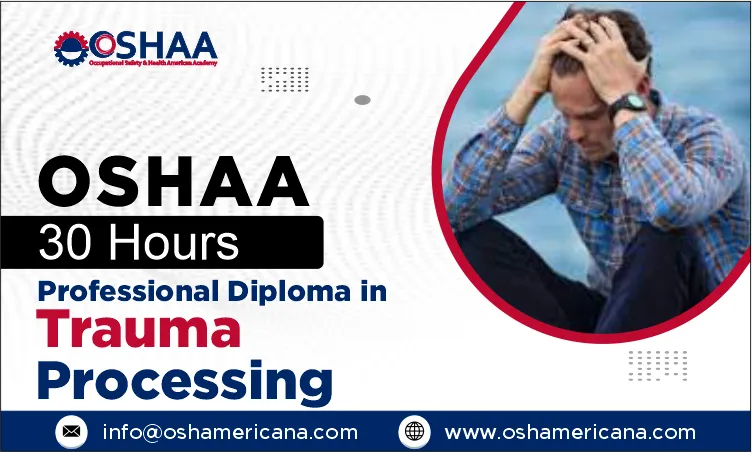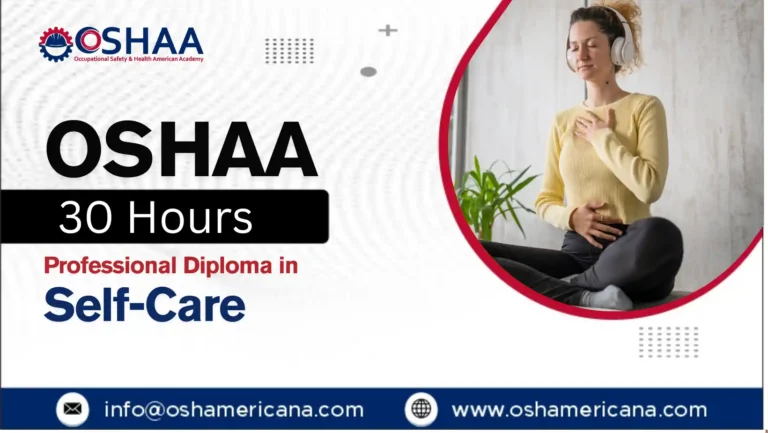The role of a veterinary assistant is integral to the smooth operation of animal healthcare facilities, ensuring the well-being of pets, livestock, and other animals. For those passionate about animal care and looking to pursue a career in the veterinary field, the OSHAA 30-Hours Professional Diploma in Veterinary Assistant offers a comprehensive training programme to equip individuals with the essential skills and knowledge needed to assist veterinary professionals effectively.
The demand for veterinary professionals continues to grow, driven by the increasing number of pet owners and the need for animal care across a variety of sectors. As a veterinary assistant, you’ll have the opportunity to work closely with both animals and veterinary professionals, contributing to the health and recovery of animals. The OSHAA 30-Hours Professional Diploma in Veterinary Assistant provides students with the tools they need to succeed in this vital role. The course is designed to offer an in-depth understanding of veterinary practices and procedures, preparing you to assist in medical treatments, provide care to sick or injured animals, and support the veterinary team with essential administrative and clinical tasks.
The OSHAA 30-Hours Professional Diploma in Veterinary Assistant covers a broad range of topics, all designed to provide students with the foundational knowledge and practical experience necessary for a career in animal care. The course is delivered in a flexible format, ensuring that it accommodates the needs of busy professionals or students.
The OSHAA 30-Hours Professional Diploma in Veterinary Assistant offers a thorough and accessible training program that prepares you for a rewarding career in animal care. Whether you are just starting out or looking to enhance your skills in the veterinary field, this course provides the necessary knowledge and practical experience to succeed.
OSHAA 30-Hours Professional Diploma in Veterinary Assistant
Study Units
Learning Outcomes
Introduction to the Veterinary Profession (3 hours)
- Understand the role and responsibilities of veterinary assistants within the animal healthcare industry
- Gain insight into the different areas of veterinary practice, including clinics, animal hospitals, and research facilities
- Learn about the essential skills required to be an effective veterinary assistant
- Develop a basic understanding of the veterinary team’s structure and collaborative roles
Basic Animal Anatomy and Physiology (5 hours)
- Recognise the key anatomical structures of common animals, including pets and livestock
- Understand the physiological processes that occur in different animal species
- Learn how to identify and differentiate between various animal body systems, such as circulatory, respiratory, and digestive systems
- Apply knowledge of anatomy and physiology to assist in clinical procedures and patient care
Animal Handling and Behaviour (3 hours)
- Learn effective techniques for safely handling animals in a veterinary setting
- Understand animal body language and behaviour to minimise stress for both the animal and the veterinary team
- Gain skills in restraining animals for examinations or medical procedures without causing harm or distress
- Develop the ability to recognise signs of fear, aggression, or anxiety in animals and adjust handling techniques accordingly
Veterinary Medical Terminology (5 hours)
- Become proficient in understanding and using common veterinary medical terminology
- Learn the meaning of key terms related to diseases, treatments, and diagnostic procedures
- Develop the ability to accurately document patient information and communicate effectively with the veterinary team
- Recognise the importance of precise medical language in ensuring clarity and accuracy in animal healthcare
Clinical and Diagnostic Procedures (4 hours)
- Gain knowledge of common diagnostic techniques used in veterinary medicine, such as blood tests, X-rays, and ultrasound
- Learn how to prepare animals for clinical procedures and assist veterinary professionals during examinations
- Understand the importance of diagnostic accuracy in determining treatment plans
- Develop skills in collecting and processing samples for diagnostic purposes
Patient Care and Nursing Skills (4 hours)
- Learn how to monitor animal vital signs, including heart rate, respiration, and temperature
- Understand the fundamentals of nursing care, including wound care, bandaging, and administering medications
- Gain practical experience in post-operative care and monitoring recovery in animals
- Develop skills in assisting with injections, administering oral medications, and managing pain in animals
Sterilisation and Infection Control (3 hours)
- Understand the importance of infection control in veterinary settings to prevent the spread of diseases
- Learn the proper techniques for sterilising medical instruments and maintaining a clean clinical environment
- Gain knowledge of infection prevention measures, including hand hygiene and the use of personal protective equipment (PPE)
- Learn the protocols for cleaning and disinfecting animal cages, treatment areas, and surgical instruments
Veterinary Pharmacology (3 hours)
- Gain an understanding of common medications used in veterinary care, including antibiotics, analgesics, and vaccines
- Learn how to administer medications to animals according to veterinary instructions
- Understand drug dosages, administration routes, and potential side effects in different species
- Develop the ability to recognise signs of adverse reactions or allergic responses to medications in animals
- Comprehensive Knowledge: Gain a thorough understanding of veterinary practices, animal anatomy, and clinical procedures, ensuring you are well-prepared to assist veterinary professionals in a variety of settings.
- Hands-On Skills: Develop practical skills in animal handling, patient care, and medical procedures, enabling you to support veterinary teams effectively in real-world situations.
- Career Advancement: Enhance your career prospects in the veterinary field, opening up job opportunities in clinics, animal hospitals, shelters, research facilities, and more.
- Specialised Expertise: Acquire knowledge in essential areas such as medical terminology, veterinary pharmacology, and infection control, making you a valuable asset to any veterinary practice.
- Increased Employability: With a professional diploma recognised within the veterinary industry, this qualification boosts your employability, demonstrating your commitment to high standards of care and professionalism.
- Up-to-Date Practices: Stay current with the latest veterinary procedures, treatments, and technologies, ensuring that you are equipped to meet the evolving needs of the industry.
- Client Communication Skills: Learn how to interact effectively with pet owners and clients, improving customer service and supporting the veterinary team in managing appointments, records, and other administrative tasks.
- Ethical and Legal Understanding: Develop a strong foundation in the ethical and legal responsibilities of working in animal care, ensuring that you uphold the highest standards of animal welfare and professional conduct.
- Flexible Learning: The 30-hour structure of the course offers flexibility, making it ideal for those looking to advance their skills while balancing other work or personal commitments.
- Real-World Application: This diploma is designed to provide you with the knowledge and skills you can immediately apply in a professional veterinary setting, making a meaningful difference in animal care.
The OSHAA 30-Hours Professional Diploma in Veterinary Assistant is designed for individuals who are passionate about animal care and wish to pursue a career in the veterinary field. This course is suitable for a variety of professionals, including:
- Aspiring Veterinary Assistants looking to gain essential skills and knowledge to assist veterinarians in clinical, diagnostic, and administrative tasks.
- Animal Care Workers in shelters, pet stores, or rescue organisations who want to expand their understanding of veterinary practices and enhance their career prospects.
- Veterinary Technicians who want to further their expertise and gain additional practical skills in patient care and veterinary procedures.
- Pet Owners who want to deepen their knowledge of animal health, welfare, and care practices to better look after their pets.
- Animal Shelter Staff seeking professional training to improve their ability to care for animals in a veterinary environment.
- Individuals Transitioning to a Veterinary Career who wish to build a solid foundation before advancing to more specialised roles in the veterinary sector.
- Veterinary Support Staff including receptionists and administrative professionals in veterinary practices, who want to gain a better understanding of clinical procedures and improve client communication.
Whether you’re just starting your career in animal care or seeking to specialise in veterinary assistance, this course provides the necessary knowledge and practical skills to succeed in the field.







